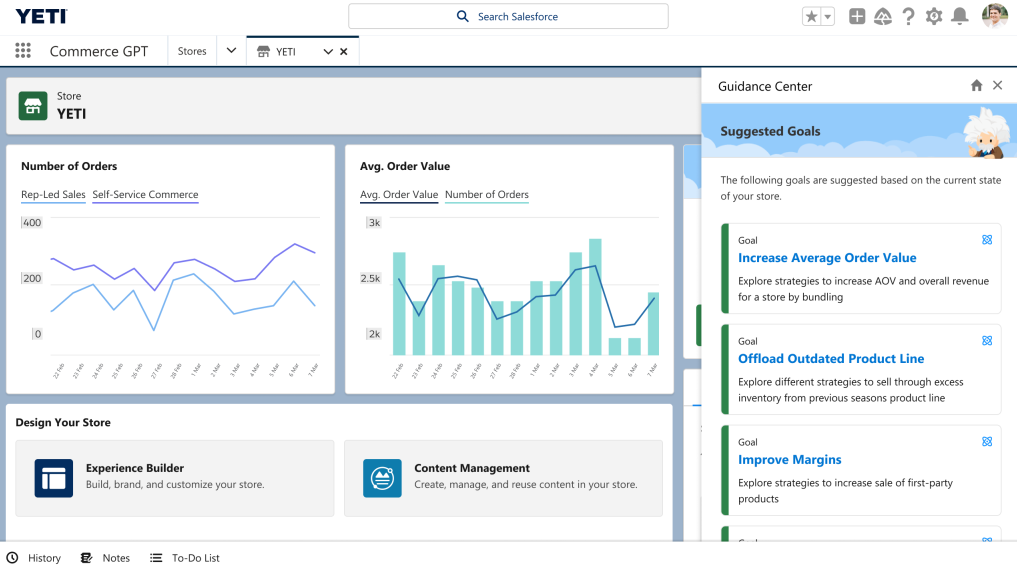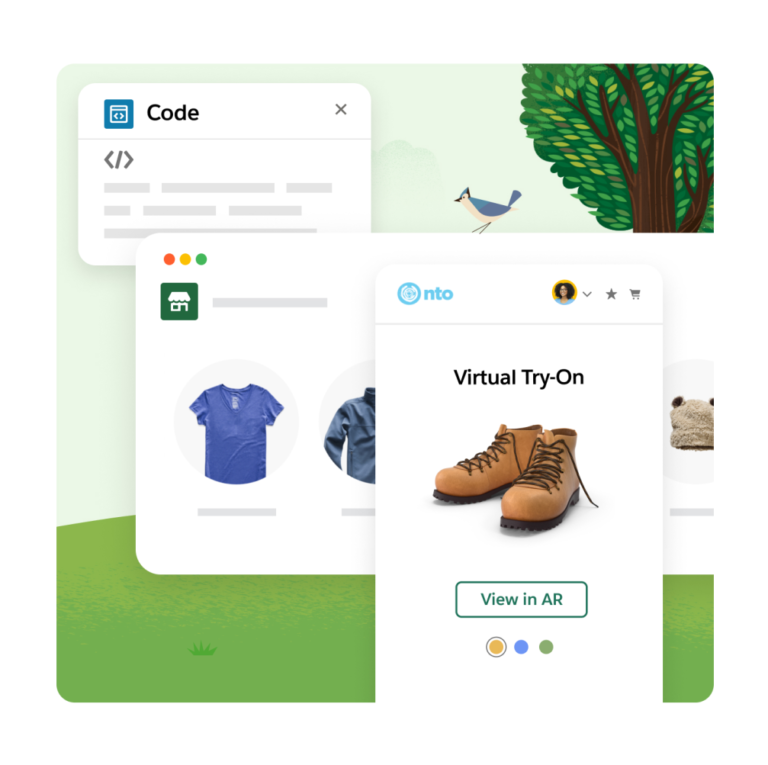How Salesforce Commerce GPT Can Transform Customer Experience in Online Shopping

How Salesforce Commerce GPT Can Transform Customer Experience in Online Shopping
Introduction to Online Shopping and Customer Experience
Author: Dorian Sabitov, a skilled IT professional with specialized expertise in Salesforce.
Nearly every day, we make purchases through our phones, tablets, or PCs, and it's all about online shopping. I don't know anyone who hasn't bought something online. Online shopping's journey is nothing short of a tech-fueled roller coaster, thanks to the leaps and bounds in artificial intelligence (AI) and machine learning.
It's not just a change we're talking about—it's a total game makeover. Imagine shopping experiences so tailored and smooth, they feel like magic. That's what AI is bringing to the table. Salesforce for Ecommerce sites are now racing to weave in these smart technologies, aiming to guess your next want before you even click search. The goal? Shopping that feels more like a personal boutique experience, right from your screen.
Unlock SFCC Pro Tips!
Imagine what you’re missing in our other guides! Stay ahead of the competition, get exclusive pro tips, and master Salesforce Commerce Cloud like never before.
👉 Subscribe NOW and never struggle with SFCC again!
Insight:
Based on the Salesforce News & Insights, in San Francisco, June 7, 2023 — At the Connections event, Salesforce (NYSE: CRM), a worldwide frontrunner in CRM solutions, unveiled its new generative AI innovations: Marketing GPT and Commerce GPT.
Marketing GPT is set to revolutionize the field by enabling the automated creation of customized emails, intelligent audience segmentation, and tailored marketing paths. Commerce GPT, on the other hand, promises to transform online shopping by offering personalized experiences and tailor-made promotions through AI-driven, adaptive purchasing pathways.
Nowadays, consumers expect to interact with brands across multiple channels seamlessly. Messaging platforms, in particular, are becoming a key venue for this type of interaction, offering the ability to engage in dynamic dialogues that incorporate elements like product catalogs directly into the conversation, thereby creating a cohesive shopping experience without the need to navigate away from the chat.
Exploring how to effectively leverage AI for your business? Commerce GPT by Salesforce presents a compelling approach. It drives quick adoption among users by seamlessly integrating with Salesforce's reimagined Commerce Cloud, which now synergizes AI, Data Cloud, and CRM technologies.

Salesforce Commerce Cloud: A Quick Overview
Salesforce Commerce Cloud (SFCC) is leading the charge in ecommerce innovation, offering companies a robust platform to craft customer-focused online shopping experiences. Originally known as Demandware until Salesforce's acquisition, SFCC has grown into a great set of tools for retailers and brands to connect with their customers wherever they are.
At its heart, SFCC aims to make ecommerce integration with Salesforce straightforward, providing features that help businesses streamline everything from inventory management to crafting personalized marketing.
Key Features of Salesforce Commerce Cloud
Unified Commerce: SFCC provides a unified platform that integrates ecommerce with sales, marketing, and customer service.
Personalization: Leveraging AI and machine learning, SFCC delivers personalized shopping experiences tailored to each shopper.
Global Scale and Localization: SFCC supports businesses expanding globally while maintaining localized experiences.
Omni-Channel Capabilities: Customers can seamlessly switch between online and offline channels.
Ecosystem and Integration: SFCC integrates with Sales Cloud, Marketing Cloud, and Service Cloud, as well as third-party apps via the Salesforce AppExchange.

The Role of Salesforce Commerce GPT in Ecommerce
Salesforce has introduced Commerce GPT, aiming to revolutionize ecommerce integration by integrating advanced AI capabilities.
Core Features of Salesforce Commerce GPT:
Goals-Based Commerce: AI-driven insights help businesses achieve e-commerce objectives like improving margins or increasing AOV.
Dynamic Product Descriptions: Automates product description generation and translation for faster product launches.
Commerce Concierge: AI-powered chatbots for personalized, "white glove" customer service.
Commerce GPT’s AI-driven approach ensures seamless, personalized customer experiences across all touchpoints while maintaining Salesforce's commitment to data security.
Transforming Customer Experience with Salesforce Commerce GPT
Commerce GPT enhances customer experience by:
Personalized Shopping Journeys: AI-driven recommendations based on customer data.
Automated Customer Service: AI chatbots provide real-time support.
Operational Efficiency: AI streamlines inventory and order management.
Real-World Impact
ReserveBar: Scaled operations, doubling product catalog and launching new sites in 30 days.
Numatic Iberia: Leveraged AI to optimize sales pipeline, reducing neglected leads from 25% to 6-8%.
Halfords: Achieved a 61% traffic increase and a 31% conversion rate boost in just one year.
Challenges and Considerations in Implementing AI in Ecommerce
Key Challenges:
Data Quality and Security: AI relies on high-quality, secure data.
Integration Complexity: AI adoption requires system and organizational adaptation.
Customer Trust: Transparency is key to gaining customer confidence.
Cost and ROI: AI implementation can be expensive.
Talent Gap: Skilled AI professionals are in high demand.
Overcoming Challenges:
Prioritize data security.
Develop a clear AI strategy.
Build customer trust through transparency.
Assess ROI before large-scale implementation.
Invest in AI training and talent development.
Future of Online Shopping
AI is shaping ecommerce with:
Enhanced personalization and product discovery.
Streamlined operations and AI-powered customer service.
Dynamic pricing strategies and fraud prevention.
Despite challenges, AI is transforming ecommerce, making it more personalized, efficient, and engaging.
Final Thoughts
Salesforce Commerce GPT is revolutionizing ecommerce by offering tailored shopping experiences, improving efficiency, and boosting customer engagement.
Businesses leveraging Commerce GPT can expect increased conversion rates, streamlined operations, and a competitive edge in the digital marketplace.





